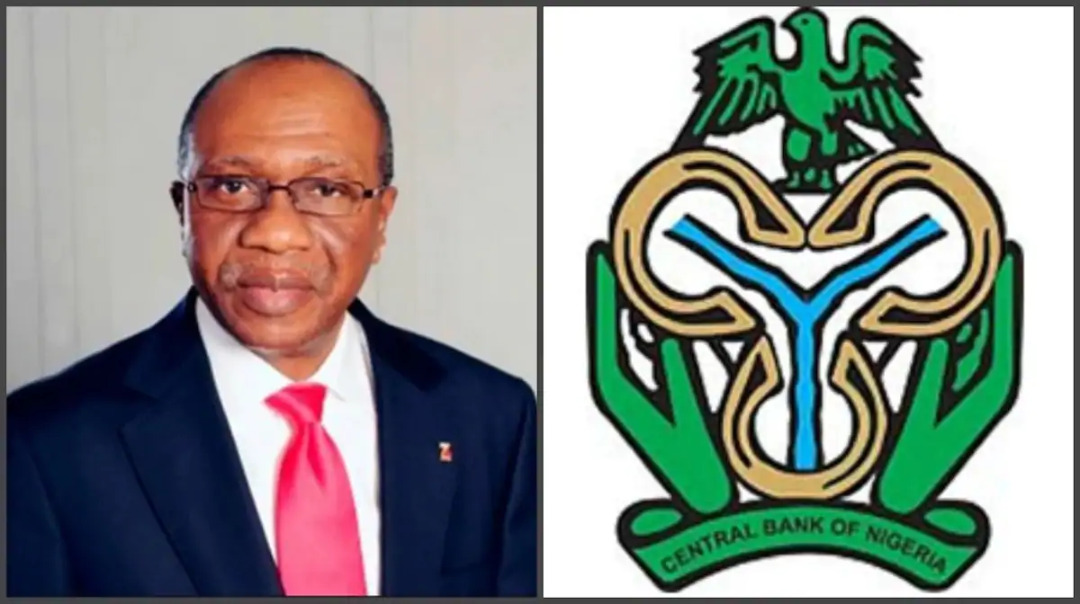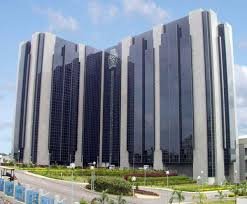As Nigeria, and its oil-dependent economy grapple with the serious disruptions caused by the global spread of the Corona Virus, there have been many questions about how the country will cope. The onslaught of COVID 19, and the resultant shut down of the global economy has precipitated a very disturbing outlook for the country. Nowhere is this more apparent than in the fact that the price of crude oil has tumbled so badly that Nigeria’s revenue projections are now in dire straits. Already, plans are underway to cut over 1 trillion from the 2020 budget. As at March 18, the price of black gold had crashed to the abysmally lowly mark of $27.56. That figure is way below the 2020 budget benchmark of $57 on which the budget was anchored. The signs are everywhere that the price could drop further, upending public finances, and worsening the poverty in the land. As expected, the government has had to reduce the benchmark price of crude oil in the budget from $57 to $30 even as the price continues to nosedive. The severe beat down of the price of Nigeria’s major foreign exchange earner has also triggered talk of another recession, especially as uncertainty stalks the global economy.
The unprecedented lock down in the metropolitan economies due to drastic measures being enforced to contain the spread of the virus has had serious implications on the ground in Nigeria. The manufacturing sector, which is already hobbling from the internal constraints such epileptic power supply will feel the pinch. So too are the small-medium enterprises, which have been reeling from the truncation of supply chains, and the loss of turnover. In the months ahead, these problems will manifest further in job losses, revenue shortages for businesses, and lack of disposable income for households. The projections for Nigeria huge informal sector are also not looking good, especially as rising costs collide with severe cash crunch in the economy. As predicted, the economic consequences of the pandemic would likely be accentuated by foreign exchange instability. This is already being felt in the current steep fall of the local currency.
In the face of the economic challenges precipitated by the COVID 19 pandemic, the Central Bank of Nigeria (CBN) has been able to move very swiftly to put out the economic fires. Under the leadership of Godwin Emefiele, the CBN has also sought to inject a dose of optimism through smart and proactive policy making. Despite the bleak outlook with respect to oil, Emefiele and his team at the apex bank have been working to stabilize things by projecting the crisis as an opportunity to deliver on Nigeria’s decades-long talk about economic diversification. While some other government institutions whose mandates are connected to the management of the economy were still contemplating what to do, the CBN was already off the block, offering palliatives to cushion the disruptive effects of the pandemic.
The raft of measures had the touch of a comprehensive stimulus plan, which if followed through could lift the economy by its bootstraps, and put it on the road to recovery. At the heart of the matter is the 1 trillion Naira stimulus plan, which is expected to mitigate the damaging impacts of the crisis. On March 16 for instance, the circular sent by the CBN to deposit money banks and the public harped on key monetary policy measures to respond to the economic ravages precipitated by COVID 19. The apex bank’s diagnosis firstly came to terms with the severity of the crisis. It noted that the Corona Virus outbreak has had significant adverse consequences on the global and Nigerian economies. It went on to acknowledge that the COVID 19 problem has already led to “unprecedented disruptions in global supply chains, sharp reduction in crude oil prices, turmoil in stocks and financial markets, massive cancellation in sporting events. Added to these are the identified shut downs in entertainment, closure of businesses, lock downs to stop large movement of persons in many countries. The global dimension of the economic issues involved also reflects in the restriction of flights across critical air routes in the world. Those outcomes have had serious adverse implications for key sectors including, but not limited to oil and gas, airlines, manufacturing, trade and consumer markets.
As such, the CBN was therefore clear about the need to work for financial stability of the economy in the face of the many disruptions. This it opted to do by providing support to COVID 19 affected households, businesses, regulated financial institutions and other stakeholders. One of such steps to achieve the goal is the extension of moratorium for the bank’s intervention facilities by one year on all principal repayments. According to Kevin Amugo, Director, Financial Policy and Regulation, “this means that any intervention loans currently under moratorium are hereby granted additional period of one year. Accordingly, participating financial institutions are hereby directed to provide new amortization schedules for all beneficiaries.”
Another key measure taken by the CBN has to do with the reduction of interest rates on all applicable CBN facilities from 9 percent per annum to 5 percent. The Central Bank has also gone on to create N50 billion targeted credit facility through the NIRSAL Microfinance Bank for households and small and medium enterprises “that have been particularly hard hit by COVID 19, including but not limited to hoteliers, airline service providers, healthcare merchants and others.”
The CBN was equally specific in terms of provision of credit support for the healthcare industry, which has been burdened with the task of caring for patients infected with the virus. It said this was to meet potential increase in demand for healthcare services and products. The financial instruments were mainly intervention facilities, and loans to pharmaceutical companies intending to expand or open their drug manufacturing plants in Nigeria, as well as to hospital and healthcare practitioners. In the context of the mitigation strategy, the agriculture and manufacturing sectors are also not left out. The Deposit Money Banks have therefore been granted leave to consider restructuring of the tenor and loan terms for businesses and households most affected by the outbreak of COVID 19. Still on the strategy of taking the crisis as an opportunity, CBN has tried to use its interventions targeted at mitigating the COVID 19 disruptions to reaffirm the efficacy of previous its policies. One of such is the Loan to Deposit (LDR) ratio, which the apex bank deployed to encourage Deposit Money Banks to put more credit into the economy.
The CBN notes that “in view of the success of the LDR policy in growing credit to the economy, and reducing interest rates, the CBN would further support industry funding levels to maintain DMBs’ capacity to direct credit to individuals, households and businesses. We will consider additional incentives to encourage extension of longer tenured credit facilities.”
CBN believes its interventions to mitigate Corona Virus would combine with previous efforts in the area of development financing to lay the basis for a sustainable economy. In the area of development finance, the idea is to supply of finance to various sectors of the economy, which will promote growth in a holistic manner. This, the CBN believes will make development to proceed at a faster rate. The initiatives in this respect are mainly targeted at agricultural sector, rural development and micro, small and medium enterprises. The scheme, which is managed by the CBN looks to provide guarantee cover to banks which give loans to the agricultural sector of the economy. “This encourages the banks to provide more funding to the farmers. The Scheme has an authorized share capital of N3 billion controlled by the Federal Government (60%) and the CBN (40%).”
Writing on the possible impact of the stimulus plan, an economic analyst Shola Ogunniyi, said the injection of the cash into the economy is the right step in the needed direction. He said given the economic problems precipitated by the COVID 19 pandemic, the CBN could consider printing money to bail out the economy. He said: “On the 1 trillion Naira stimulus, the Central Bank can print Nigeria out of the looming crisis. Print more money (more credit alerts for workers and other key sectors). But inflation will rise. It is a good trade-off for now.” The analyst’s position is in line with the idea of the CBN leading the process to help the country spend its way out of the crisis.
However, the CBN’s laudable initiatives aimed at investing in people and creating wealth in the economy are administered by the Deposit Money Banks. The CBN says it has around N3 trillion earmarked for various intervention programmes, which are run through the various Deposit Money Banks. These initiatives include the anchor borrowers scheme, commercial agricultural credits scheme, micro-small and medium-scale enterprise, and agri-business. Beyond the CBN’s interesting plans however, there are concerns about the practice of handing the intervention funds to the Deposit Money Banks to administer. Analysts have argued that this model has not allowed the funds to trickle down to the intended beneficiaries.
A journalist, Geoff Iyatse warned that since the monies will be administered by the Deposit Money Banks, it was important not to get carried away by the scale of the stimulus package. His words: “The devil is in the disbursement. How does the CBN intend to disburse the money? Through the commercial banks who will come up with their phoney conditions? Does it (CBN) have the capacity to do direct disbursement? Can the CBN tell us the percentage of the previous interventions that has been accessed by the intended beneficiaries? The intended beneficiaries are not getting it,” he said. In the end, while no one has questioned the laudable intentions in the stimulus package, the main concern has been with the modalities for the distribution and evaluation. The key task is to ensure the intended beneficiaries get the funds. This will surely involve a closer scrutiny and supervision of the banks to ensure their processes are transparent and inclusive. A balance between good ideas and faithful implementation should lead to an efficient process, which should in turn help the country withstand the vagaries imposed by the disruptions caused by COVID 19























Thanks for your marvelous posting! I genuinely enjoyed reading it,
you might be a great author.I will be sure to bookmark your blog
and will come back from now on. I want to encourage you
to definitely continue your great writing, have a nice day!
I’m not that much of a internet reader to be honest but your
sites really nice, keep it up! I’ll go ahead and bookmark your website
to come back later on. Cheers
whoah this blog is great i really like reading your
articles. Keep up the great work! You know, many individuals are searching around for this info, you could aid them
greatly.
Good article! We will be linking to this great post on our site.
Keep up the great writing.
Hi there just wanted to give you a quick heads
up. The words in your post seem to be running off the screen in Safari.
I’m not sure if this is a formatting issue or something to do with browser compatibility but I thought
I’d post to let you know. The design look great though! Hope you get the problem
solved soon. Cheers
Thanks for the heads up. We will work on it.
Greetings! Very useful advice within this article!
It’s the little changes that produce the largest
changes. Thanks a lot for sharing!
WOW just what I was looking for. Came here by searching for
man tgx interni